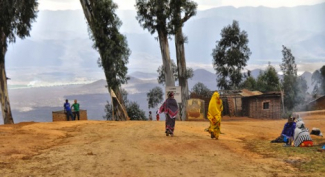FILTER
Displaying 201 - 210 of 465 publications
Energy has been called the “golden thread” that connects economic growth, social equity and environmental sustainability, but important knowledge gaps exist on the impacts of low- and middle-income…
| Peer Reviewed | China, Chile, Sweden, Ethiopia, Tanzania, Kenya, Central America and Mexico, Global HubThis chapter examines six major global forces likely to influence forests and tree-based systems and considers their implications for poverty. The global trends discussed include: (i) growth in…
| Book Chapter |Achieving the SDG7 goal, among other things, requires doubling efforts in energy efficiency improvements. However, in Africa, the progress has been slow, proving difficult for the continent to achieve…
| Peer Reviewed | GhanaAbstract The coronavirus pandemic is having substantial impacts on the oil and gas industry. Following the plummeting of oil prices in March 2020, the future supply of tight oil in the United States…
| EfD Discussion Paper |Abstract The United Nations Sustainable Development Goal 7 emphasizes the need for economies around the world to double their efforts in energy efficiency improvements. This is because improvements in…
| Peer Reviewed | GhanaAbstract The United Nations Sustainable Development Goal 7 emphasizes the need for economies around the world to double their efforts in energy efficiency improvements. This is because improvements in…
| Peer Reviewed |Developing the abundant shale gas in China is a potential means to address the country’s challenges in air pollution and carbon emissions. The purpose of this paper is to evaluate the production…
| Peer Reviewed | ChinaThis study investigates the role of economic well-being and economic freedom as drivers of renewable energy consumption using the share of renewables in total energy consumption in Africa. To achieve…
| Peer Reviewed | GhanaThis study investigates the role of economic well-being and economic freedom as drivers of renewable energy consumption using the share of renewables in total energy consumption in Africa. To achieve…
| Peer Reviewed | GhanaAbstract Despite the great strides by the government of Tanzania in bolstering access to electricity in rural areas under its Rural Energy Agency (REA), rural connection rates have remained low. A…
| EfD Discussion Paper | Tanzania